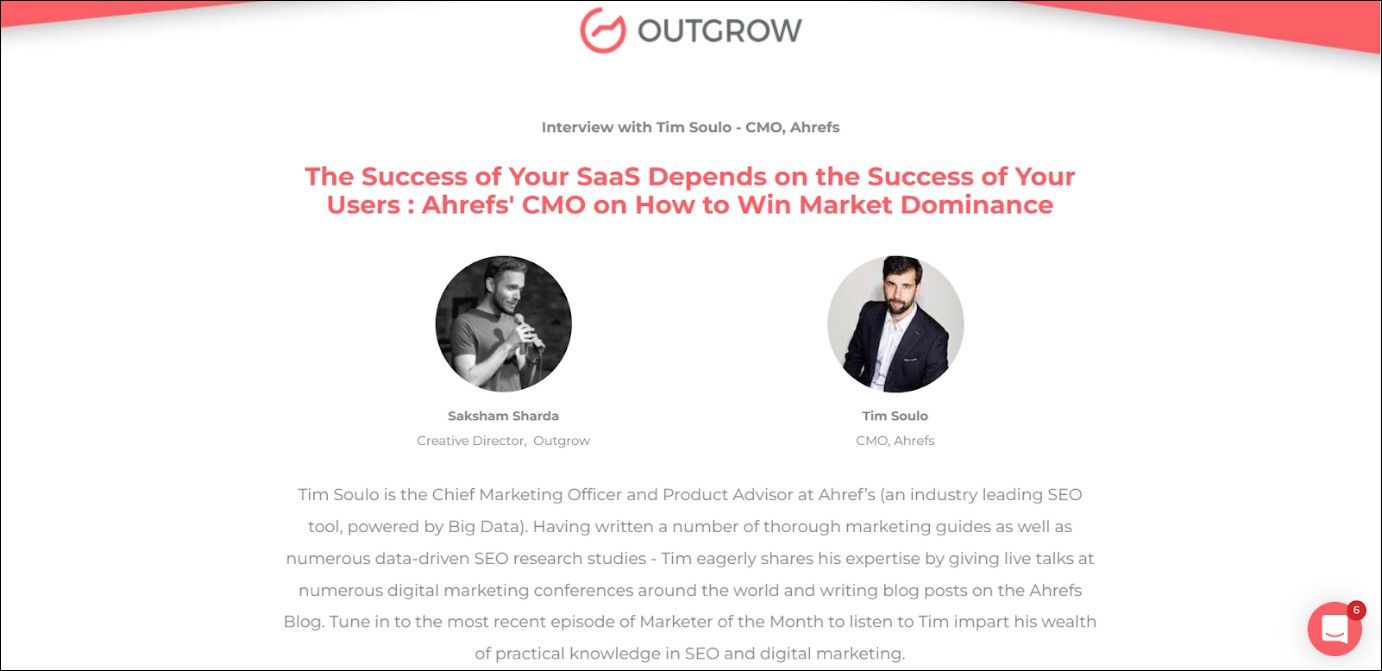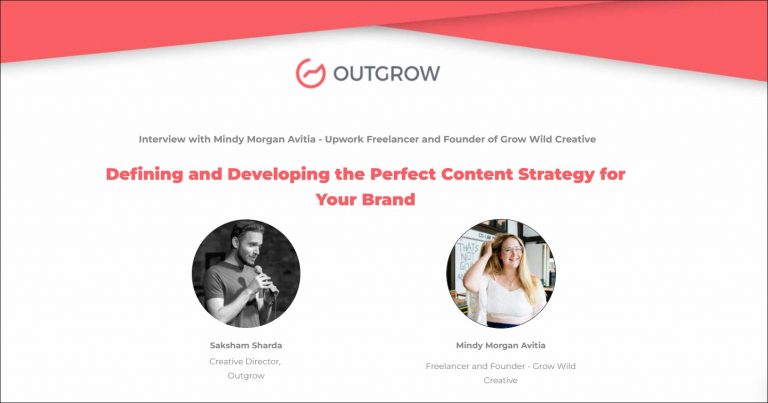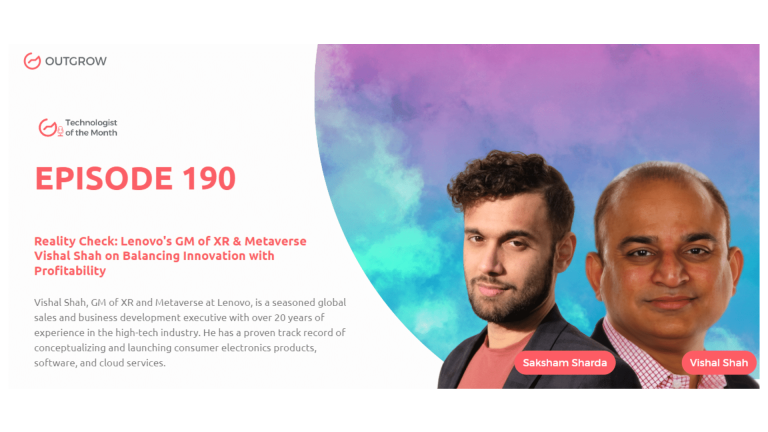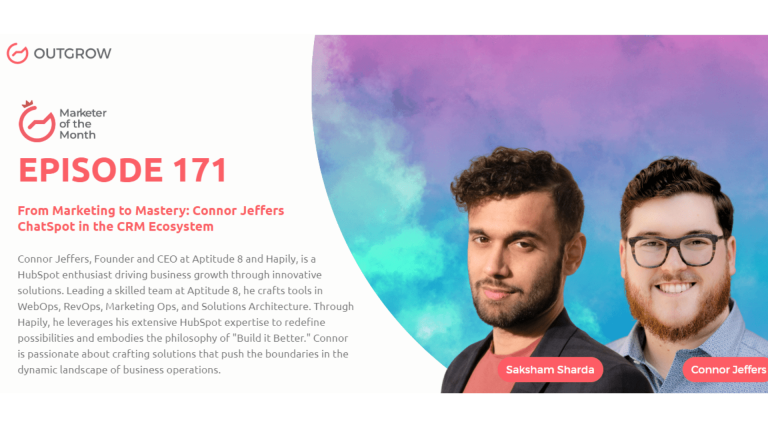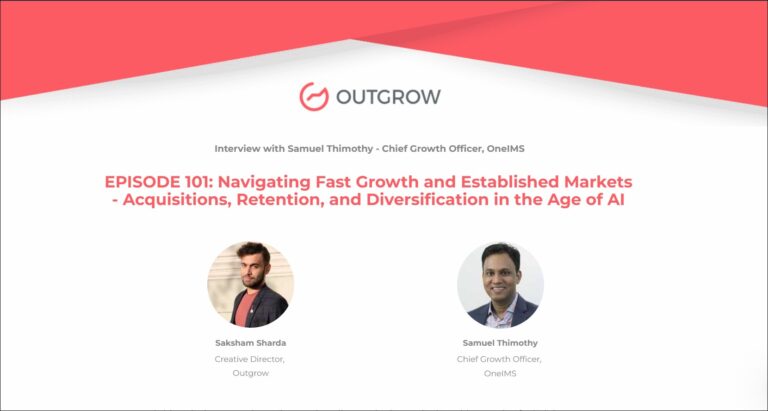Summarize with :
Marketer of the Month Podcast with Tim Soulo
Table of Contents
Hey there! Welcome to the Marketer Of The Month blog!
We recently interviewed Tim Soulo for our monthly podcast – ‘Marketer of the Month’! We had some amazing insightful conversations with Tim and here’s what we discussed about –
1. Ahrefs transformation from a fledgling startup to an industry leader
2. The true meaning of “under promise, over deliver”
3. How to choose the right platform for community building
4. Why choosing to grow your business through product-led growth is not a binary decision
5. How to gain traction as a B2B marketer
6. Marketing to marketers : putting oneself in the shoes of the client
About our host:
Dr. Saksham Sharda is the Chief Information Officer at Outgrow.co. He specializes in data collection, analysis, filtering, and transfer by the means of widgets and applets. Interactive, 9-cultural, and trending widgets designed by him have been featured on TrendHunter, Alibaba, ProductHunt, New York Marketing Association, FactoryBerlin, Digimarcon Silicon Valley, and at The European Affiliate Summit.
About our guest:
Tim Soulo is the Chief Marketing Officer and Product Advisor at Ahrefs (an industry-leading SEO tool, powered by Big Data). Having written a number of thorough marketing guides as well as numerous data-driven SEO research studies – Tim eagerly shares his expertise by giving live talks at numerous digital marketing conferences around the world and writing blog posts on the Ahrefs Blog.
The Success of Your SaaS Depends on the Success of Your Users: Ahrefs’ CMO on How to Win Market Dominance
The Intro!
Saksham Sharda: Hi, everyone. Welcome to another episode of Outgrow’s Marketer of the Month. I’m your host, Dr. Saksham Sharda. I’m the creative director at Outgrow.co. And for this month we’re going to interview Tim Soulo, who is the CMO at Ahrefs. Thanks for joining us, Tim.
Tim Soulo: Thanks for inviting me, Saksham.
Don’t have time to read? No problem, just watch the Podcast!
Or you can just listen to it on Spotify!
The Rapid Fire Round!
Saksham Sharda: So, Tim, we’re going to start with a rapid fire round just to break the ice, you get three passes. In case you don’t want to answer the question, you can just say pass, but try to keep your answers to one word or one sentence only. Okay?
Tim Soulo: Okay, sounds good.
Saksham Sharda: Describe yourself in three words.
Tim Soulo: Oh my god.
Saksham Sharda: Those are three words? The next one. If a movie was made of your life, what genre would it be?
Tim Soulo: I hope adventure.
Saksham Sharda: Okay, who would play you?
Tim Soulo: Tom Cruise.
Saksham Sharda: How many keys do you have in your keychain?
Tim Soulo: Two.
Saksham Sharda: Okay, who is the social media influencer who’s just absolutely killing it right now?
Tim Soulo: Elon Musk.
Saksham Sharda: When you’re not working, how do you like to spend your time?
Tim Soulo: With my kids.
Saksham Sharda: What’s the first-ever concert you attended?
Tim Soulo: Probably some Ukrainian band.
Saksham Sharda: If you could win an Olympic medal for any sport, real or fake, what would it be?
Tim Soulo: It would be great if it could be boxing.
Saksham Sharda: If you could change your name, what would it be?
Tim Soulo: Tim Soulo is not my real name already.
Saksham Sharda: Okay, what’s the real name?
Tim Soulo: Artem Morhelisky.
Saksham Sharda: Wow. What was your favorite subject in school?
Tim Soulo: Math.
Saksham Sharda: How many cups of coffee do you drink per day?
Tim Soulo: One and a half.
Saksham Sharda: And the last question is your favorite Netflix show?
Tim Soulo: Stranger Things as of right now.
Saksham Sharda: Okay, cool. You answered all of them quite fast. That was good.
The Big Questions!
Saksham Sharda: So, time for the longer questions. The first one is, how would you sum up Ahrefs transformation from a fledgling start-up to an industry leader in the amount of time you had?
Tim Soulo: Is this still a rapid-fire question?
Saksham Sharda: It’s not, you can actually answer this as long as you don’t care.
Tim Soulo: Well, this is a very broad question actually.
Saksham Sharda: Well, you can pick up an instance. Yeah.
Tim Soulo: One instance? Well, it was quite some trial and error. And in our case, I think Ahrefs is quite an unconventional company, quite an unconventional SaaS, business, whatever you call it, we didn’t have any and we didn’t want any venture funding. We didn’t really follow any conventional startup slash growth playbooks. We left lots of opportunities on the table by not doing many of the things that are known to be effective, such as collecting emails with pop-ups and lead magnets, such as having a sales team, retargeting people, and bringing them back to your website, giving people discounts so that they would buy more. So, we had a lot of very popular marketing tools. Brand, because of the kind of philosophy of our CEO and founder. So, our path to where we are today, I think it was very unconventional. And I’m not sure that a lot of companies are willing to go our way instead of doing what most other companies are doing. But right now, I believe the recession is making some changes to the winners and losers among the startups. And so far, knock on the wood. We are in a pretty good position because we didn’t have any funding. We don’t have to report to anyone. And we’re just going strong and we’re not afraid of any calamities like this one, basically.
Saksham Sharda: And what would be a few examples of unconventional things that your company did? Because, I think doing unconventional things has now become the new norm that people want to follow, because conventional things are leading people nowhere. So, what would be a good example of something that people could copy, or not copy or work on?
Tim Soulo: So I can’t really think of any specific, unconventional thing that we did and like unconventional researchers is such an ambiguous term, like what does unconventional even mean? I just gave quite a few examples of the conventional things that we avoided. In terms of the unconventional things that we did, we didn’t track the ROI of any marketing activity. So for example, a lot of people are obsessed with tracking the ROI of content marketing, of calculating the leads that every article they’re writing brings them. We never did that, we just knew that content marketing is a great marketing channel, it’s a great way to elevate your company to position yourself as thought leaders and has many benefits. So we weren’t trying to track the ROI of that. So if that can be called unconventional. Here’s one of the things we believed in, the value of creating useful content and not even creating useful content but also giving people valuable information, teaching them how to solve their problems. And this had a very big impact on our growth, and our success.
Saksham Sharda: So do you agree or disagree with this statement that you must deliver on the value you promote virally in such a way that people who come in through your products on marketing channels see it right away?
Tim Soulo: It sounds like a phrase, under promise over delivery, instead of the other way around. And yet we do believe this to be true. We never tried again, any sorts of marketing gimmicks, where we would call our software, AI powered machine learning neural networks etc, we didn’t try to use any fancy language to position ourselves as someone or something we are not. And yet, in our marketing communication, we like our philosophy to be extremely honest with people, we never over promise, we never promise people something that they wouldn’t get. We never position ourselves as some kind of silver bullet or snake oil. And they think this works well for us. I think that helped us to establish a kind of a trusted brand, where people actually trust what we’re saying and believe us. And don’t expect us to, I know, swindle them in any way.
Saksham Sharda: And what has led to developing this trust? What have you done to kind of build a community around this? Is there any kind of community that you guys are trying to build or a brand value? How did you go about that?
Tim Soulo: So, the community was born kind of naturally. In our case, we didn’t really do anything specifically to create a community around our brand, other than launching a Facebook group and giving people a link to join it if they want. Community is a whole different topic, actually. And right now, we are in the process of rethinking how we approach community building at Ahrefs and moving away from a Facebook group because it is very limiting. It doesn’t give you a lot of building tools. But yeah, honesty goes a long way. Being respectful to criticism, being open to discuss not only things that people like about you, but also things that people don’t like about you. I don’t think a lot of companies do this. A lot of companies allow people to criticize them within their communities. So, yeah, community building is a hard topic and I wouldn’t say we are experts in that as of today. But I think that honesty and sticking to ethical marketing practices definitely helps to facilitate loyalty from your audience.
Saksham Sharda: And so if not Facebook, like you said, what are the channels you are potentially looking at for doing this community building right now?
Tim Soulo: That’s what we’re discussing. I recently had a poll on Twitter, I asked my followers, what they would prefer, Slack or Discord. And most of them voted for Slack. The reason I personally like Slack is because it already has a pretty significant adoption among the tech companies. So a lot of people already have Slack and use it daily for communicating with their team. So it’s not a big deal for them to add an extra Slack, WhatsApp channel and just switch between them. Again, this is what I like about Facebook, because a lot of people are already on Facebook. So the Facebook group exists on the platform where people already hang out. What I don’t like about Discord is that a lot of people don’t have it already. They don’t belong to any existing Discord communities. So we might require too many of them to adopt an entirely new platform that they haven’t used before, which is why we’ll probably be moving our own community to slack.
Saksham Sharda: Okay, and what about LinkedIn? Do you think anything about LinkedIn?
Tim Soulo: I’m not an expert, but it feels very similar to Facebook. Plus, you never know how much those platforms will let you connect with your community members, because this is what infamously happened to Facebook pages. When all these social media experts were saying that businesses should create a Facebook page and invite all people to like their Facebook page, because then they can keep in touch with them and then Facebook simply demoted the reach. So previously you were able to reach like, I don’t know, 80%+ of people who like your page, then they brought this down to like just a few percent, like 5, maybe 10 and made it pay to play so that you had to advertise, which is why I don’t think that those kinds of platforms are reliable for these kinds of purpose. Whereas with Slack, they don’t limit your engagement and reach in any way. They just give you a place where people would hang out. And yeah, that’s basically you control that place, that’s very important.
Saksham Sharda: And do you believe that product lead growth in general is more than just acquiring new users? It doesn’t always have to be community building and a lot of other things? And if so, what are the things?
Tim Soulo: I have no idea of what product lead growth even means to be honest. So those terms seem like something worthy of sprawling to some SaaS philosophers, or something that would explain to us what product lead growth is, or isn’t. What I can tell you is that for us, specifically, I know for sure that the quality of our product was critical for our success. All that marketing was doing, whether it was creating content, or facilitating a community, or like some paid promotion, we were simply telling people about the awesomeness of our product. So if the product was bad, then we’d have to use those tricks, we’d have to over promise, we’d have to trick people to give us their emails, credit card details and such. But we didn’t have to do that because the product was awesome. So I wholeheartedly believe that creating an awesome product is critical for the company’s growth. If I remember it right, there’s a great quote by Ryan Holiday, a prolific writer. He said, “promotion is not how things are made great, it’s how they’re heard about”. So this is a quote if I’m not mistaken from his book, ‘Perennial Seller’, and it’s struck a chord with me quite significantly. And this is what I saw on a trip so the main objective of marketing was to promote the awesomeness of Ahrefs to people, marketing didn’t have to make our product awesome. Marketing just had to tell people how awesome we are. And it was the job of our developers and our product team, our UI UX specialists to make an awesome product. Well, in part, it’s also the job of marketers, because again, we are going into philosophical areas here, like what is marketing, but the word marketing has the word market in it. So in part, you have to study the market, you have to understand what it wants, and you have to create the kind of product that the market would want to have. So yeah, the product is absolutely critical. So if someone is struggling with marketing, maybe they should look into their product, and see if it is awesome enough.
Saksham Sharda: And what are some of the things you would like to highlight about your product that you personally absolutely love?
Tim Soulo: The main problem in our situation, a lot depends on the quality of data. Because we are not a typical tool, for example, we are using a tool for feature requests called Kenny, it’s a great tool, we like it a lot. Very simple and useful interface, lots of nice features that we use, but essentially, not to criticize them, but they are kind of like an overpriced forum. Because it’s just the place for people to leave messages and for other people to post replies to these messages and create the polls for these messages. It’s almost like Reddit, just in a different interface. So it’s that kind of product that doesn’t require a lot of technical expertise, it is fairly easy to build. In our case, to create a product like Ahrefs, you have to visit all of the pages that exist on the internet, you have to store them on your servers, you have to revisit them fairly often to pick up any changes to those pages. And then at a click of a button, you have to be able to sort through those like I know hundreds of petabytes of data, and give people whatever insights they’re looking for in a matter of seconds. That is a huge technical achievement. So the big part of success for a company like Ahrefs lies in our ability to be able to do this. I know a technical miracle, let’s call it that. For a company like Kenny, which doesn’t require that kind of technical skill. Their business growth and their marketing strategies and their business strategies would be entirely different from ours.
Saksham Sharda: Homepage copy cost you around $33,000. How do you believe this helped your brand gain visibility, or what did you like about the website?
Tim Soulo: So the Homepage Copy was a public case study more than anything else. It was like our version of a reality show, making something that will be interesting to people in our industry. Which is why when we needed to revamp our homepage, we didn’t just try to copy ourselves. But we decided to make it into an interesting case of hiring three different copywriting agencies, and seeing what kind of copy each of them would be able to come up with and if we would be eager to use any of those versions. Or if we would go with something kind of taken from the best ideas from each agency, which we actually spoiler alert, which we ended up doing. Eventually, we just took the best ideas and kind of created the Frankenstein kind of copy out of what three agencies have given us. And in terms of what it did, it’s not that this copy is any better than what some Junior copywriter would write, maybe not Junior but a skilled copywriter who is working in a company and understands what your company is about and how to sell your product. In just the actual cases, interesting and provided something for people in our industry to talk about, something to discuss, just generated a little bit of buzz around our product and how we approach marketing. Just like turning one could say mundane marketing task of updating the copy of a homepage to an interesting experiment threat/reality show.
Saksham Sharda: And would you describe this as one example of the unconventional marketing that Ahrefs has been doing since its beginning?
Tim Soulo: Yeah, probably this would be an example of unconventional marketing.
Saksham Sharda: So it really is about trying to think of ideas out of the box that no one has done before. And I think if someone tries to copy your idea, it would no longer be unconventional because it really has to be something out of the box.
Tim Soulo: Yeah, probably as a marketer, because again our company is in a rather unique position, because we are creating a marketing tool for marketers. So, I am a marketer who has to market to marketers, this is quite a unique position to be in. And being in this position, I constantly think of how to attract the attention of other marketers like what I would be interested in, what would catch my attention either on social media or when I go to have beers with my friends who are working in other industries, which is why whenever we need to do something, often we are trying to think like how to make it more interesting, how to make it more entertaining. And again, in terms of our day-to-day jobs, it makes our day to day jobs more interesting as well, because we don’t just update the homepage copy. We turn that into a fun experiment, then that we can discuss with other people in the industry.
Saksham Sharda: Could you give us some examples of marketing campaigns from other companies that have gained your attention as a marketer?
Tim Soulo: It’s hard to come up with anything on the spot, probably something very trivial. Like a Lego Movie. Basically, the Lego movie is just a huge campaign to sell more levels. And this pretty cool, the more recent example is probably the famous Youtuber, Mr. Beast, who published a video about him recreating the Chocolate Factory, Willy Wonka’s chocolate factory, or something like this. And then I saw someone’s tweet, I didn’t watch the actual video, I don’t really follow Mr. Beast. But I saw someone’s tweet that Mr. Beast actually launched his own chocolate bar. And basically, this whole video was an enormous ad for his chocolate brand, which was pretty cool if you ask me.
Saksham Sharda: Okay, and what would be a way in which B2B marketers can kind of gain this kind of attention?
Tim Soulo: Great question. I don’t think I have a specific answer for this. Other than that, you have to put yourself in the shoes of your customers. So the people who you’re trying to sell to, and you have to think what would catch their attention, like if you’re seeking their attention, like there are different things you could be doing, you can be serving their demand. So if they’re searching for something on Google and you provide the solution, then SEO is what you should be doing, you should be answering their demand. But if you’re in the kind of situation where people are not actively searching for what you’re doing, they’re not aware they have this problem, then you have to be fighting for their attention. You have to be the tweet on Twitter that they would see, you have to be the Facebook poster they would see. And in this situation, you have to think of what my target audience might be interested in, what might catch their attention. What are the buzzwords, what are the recent events? What kind of stand or experimentation is due to catch their attention and to make them want to click? So yeah, it’s a very hard question. I don’t think there is a specific formula to how to do this, it will be very unique to every industry and to every product and to every service.
Saksham Sharda: Okay, so speaking of marketers in marketing, if we were to leave all that aside, what would you be doing in life if not this?
Tim Soulo: Amazing question. Before tapping into marketing, I actually used to be a DJ. Yeah, and I also tried to produce my own music, but I quickly understood that I’m lacking the formal musical education so I don’t understand the notes and how they work with each other, the chords and such. So probably in another chance at my career, I kind of like show business, I like the business of entertainment. Those successes of YouTubers and the fun things that they are doing and their creativity. It always inspires me. So probably those marketing stunts with investing $30,000 into homepage copy revamp. It’s maybe in a way a testament to Mr. Beast and the stuff that he’s doing. So probably I would have tried to go into show business and I don’t know, work with some YouTubers and help them create something interesting.
Saksham Sharda: But as you said earlier as well of marketing that marketing itself is not a real thing. It’s like ‘market’ + ‘ing’. So it doesn’t really mean anything but it is also showbiz in the same way it’s very unconventional, you don’t really need to have any prior grounding. But in the case of music, as opposed you need to have some prior grounding, but not necessarily, I suppose people have made music who’ve just come later in life and so do you think you’re ever going to return to that?
Tim Soulo: I will. I actually requested from my wife on my birthday, a synthesizer. So I’m not sure I will ever have enough time to actually produce something worthy of showing to other people but one thing for sure I will have some fun in my bedroom with this synthesizer.
Saksham Sharda: All right. Well, that was the last question.
Let’s Conclude!
Saksham Sharda: Thanks everyone for joining us for this month’s episode of Outgrow’s Marketer of the Month. That was Tim Soulo, who is the CMO at Ahrefs. Thanks for joining us, Tim.
Tim Soulo: Thanks for having me.
Saksham Sharda: Check out their website for more details and we’ll see you once again next month with another marketer of the month.

